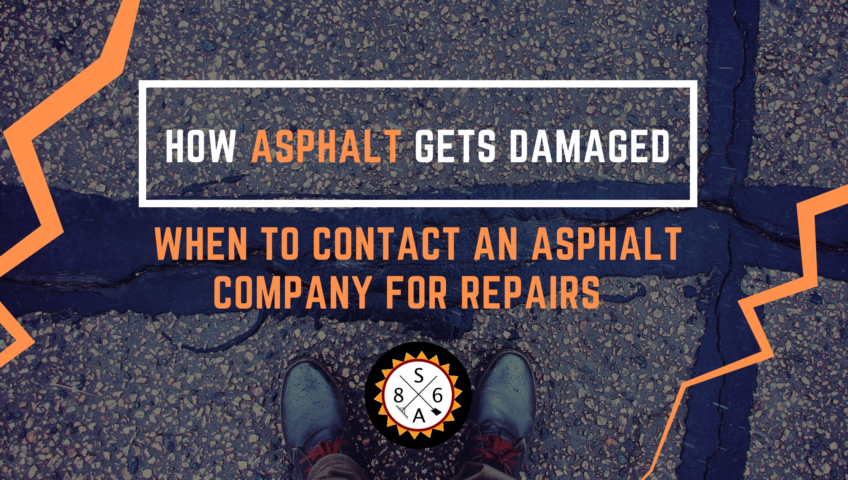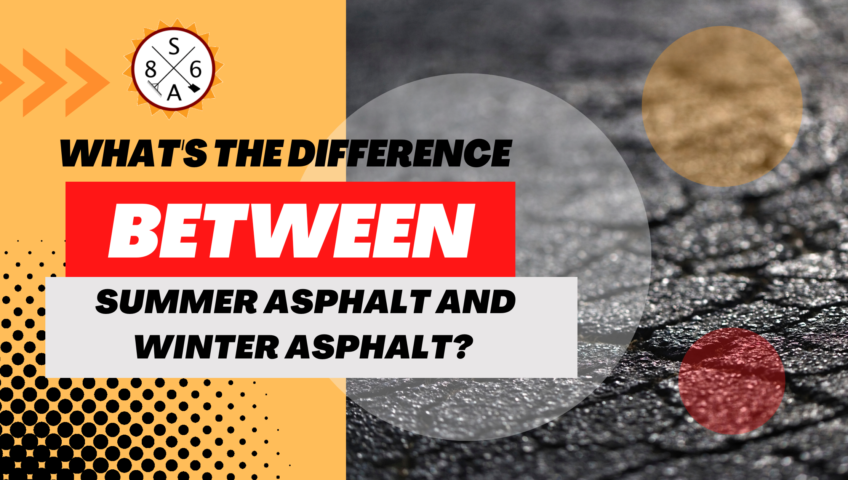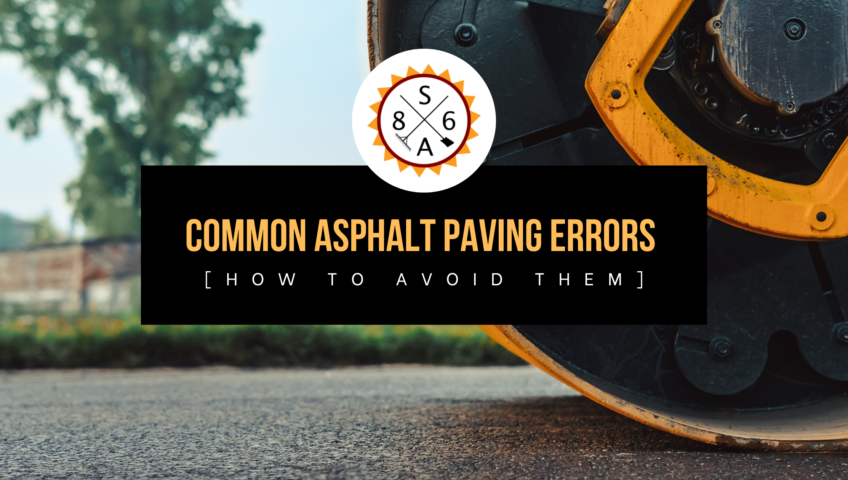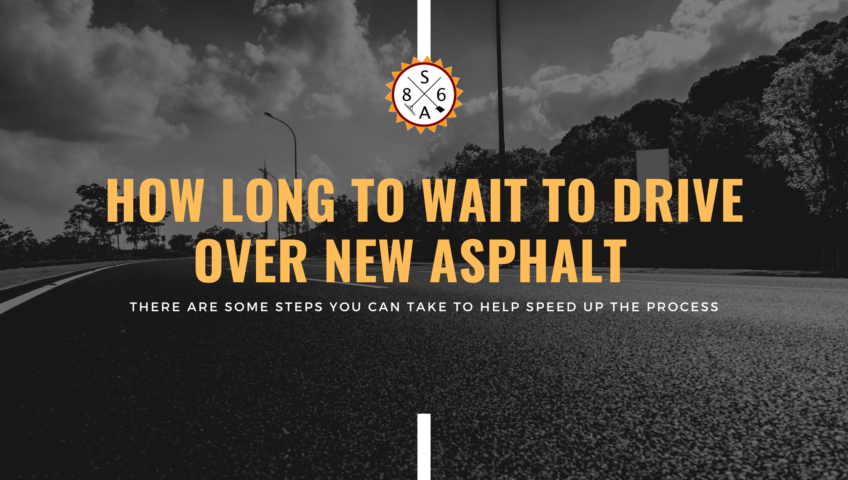
How Asphalt Gets Damaged: When to Contact an Asphalt Company for Repairs
An asphalt driveway or parking lot can last for years, but eventually you will need to contact an asphalt company for a replacement or repair. Asphalt gets damaged over time from temperature extremes, general wear and tear, spills on the asphalt, and when equipment is parked on the asphalt that is too heavy. There are a number of reasons to have your asphalt repaired, and it’s important to understand when it’s time to call for help to protect the longevity of your driveway or parking lot.
Temperature Extremes and Excessive Storms
When you live in an area that experiences temperature extremes, this can wreak havoc on your asphalt surfaces. Your asphalt will expand during hot weather, and contract slightly when the weather is freezing. This will eventually cause cracks in your asphalt that will need to be repaired. During heavy storms, your asphalt can get damaged by falling debris, and even hail storms when the hail is large enough. If you notice damage to your asphalt after a storm, you will want to have an asphalt company come to assess the damage.
Freezing Temperatures and Cracking
If water gets below the surface of your asphalt driveway or parking lot and freezes, this is going to cause frost heaves on your asphalt to form. When the ice develops, it is going to push up sections of your asphalt if there is enough water. This is why you address cracks in your asphalt immediately, so that water can’t get below the surface and cause frost heaves. Asphalt companies will work with you to address any cracks that develop before they can cause further damage to your asphalt.
Heavy Equipment and High Traffic Areas
Heavy equipment can lead to damage to your asphalt surfaces, especially when the equipment is parked for any length of time. In areas where you have substantial traffic, you may see your asphalt wear down faster than in areas where few cars travel. If you find indentations or cracks from heavy equipment that was parked on your asphalt, you will want to get this repaired. When you have indentations, this is going to ruin the structural integrity of your asphalt surface.
Oil and Chemical Spills on Your Asphalt
If you find an oil spill on your asphalt surface, this needs to be cleaned up right away. Chemical spills should be handled by asphalt companies with the experience you want to stay safe during the cleanup process. Oil and other chemicals can damage the asphalt, and cause you to need a parking lot or driveway replacement earlier than expected. Always have spills cleaned up immediately to avoid damage to your asphalt.
Asphalt companies can come to assess any damage to your parking lot or driveway when you believe there is damage to your property. Don’t ignore cracks, as these can let in water that may eventually freeze. Pay attention to any spills on your asphalt, and get these professionally cleaned up as needed. When you take good care of your asphalt surfaces, you should be able to avoid an early replacement. Looks for cracks, and call for help from asphalt companies when you need it.
An asphalt driveway or parking lot can last for years, but eventually you will need to contact an asphalt company for a replacement or repair. Asphalt gets damaged over time from temperature extremes, general wear and tear, spills on the asphalt, and when equipment is parked on the asphalt that is too heavy. There are a number of reasons to have your asphalt repaired, and it’s important to understand when it’s time to call for help to protect the longevity of your driveway or parking lot.
Temperature Extremes and Excessive Storms
When you live in an area that experiences temperature extremes, this can wreak havoc on your asphalt surfaces. Your asphalt will expand during hot weather, and contract slightly when the weather is freezing. This will eventually cause cracks in your asphalt that will need to be repaired. During heavy storms, your asphalt can get damaged by falling debris, and even hail storms when the hail is large enough. If you notice damage to your asphalt after a storm, you will want to have an asphalt company come to assess the damage.
Freezing Temperatures and Cracking
If water gets below the surface of your asphalt driveway or parking lot and freezes, this is going to cause frost heaves on your asphalt to form. When the ice develops, it is going to push up sections of your asphalt if there is enough water. This is why you address cracks in your asphalt immediately, so that water can’t get below the surface and cause frost heaves. Asphalt companies will work with you to address any cracks that develop before they can cause further damage to your asphalt.
Heavy Equipment and High Traffic Areas
Heavy equipment can lead to damage to your asphalt surfaces, especially when the equipment is parked for any length of time. In areas where you have substantial traffic, you may see your asphalt wear down faster than in areas where few cars travel. If you find indentations or cracks from heavy equipment that was parked on your asphalt, you will want to get this repaired. When you have indentations, this is going to ruin the structural integrity of your asphalt surface.
Oil and Chemical Spills on Your Asphalt
If you find an oil spill on your asphalt surface, this needs to be cleaned up right away. Chemical spills should be handled by asphalt companies with the experience you want to stay safe during the cleanup process. Oil and other chemicals can damage the asphalt, and cause you to need a parking lot or driveway replacement earlier than expected. Always have spills cleaned up immediately to avoid damage to your asphalt.
Asphalt companies can come to assess any damage to your parking lot or driveway when you believe there is damage to your property. Don’t ignore cracks, as these can let in water that may eventually freeze. Pay attention to any spills on your asphalt, and get these professionally cleaned up as needed. When you take good care of your asphalt surfaces, you should be able to avoid an early replacement. Looks for cracks, and call for help from asphalt companies when you need it.




